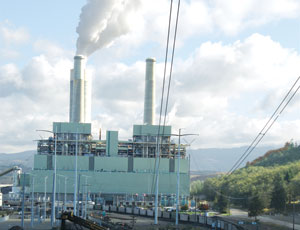Calgary, Alberta-based TransAlta will shut down its 1,340-MW coal plant in Centralia, Wash., and build a $1-billion combined-cycle natural-gas replacement plant as the result of an agreement with the state that is pending in the Legislature.

The agreement, in the works for almost two years, will result in one of the two Centralia units being shut down by Dec. 31, 2020, and the second unit to follow by Dec. 31, 2025. TransAlta will install additional selective non-catalytic-reduction air-pollution technology by 2013 to ease nitrogen oxide emissions from Washington’s largest single industrial source of that pollution. Though it is one of the state’s largest polluters, the plant only supplies 10% of its electricity.
Centralia is Washinton’s only coal plant and will be the last coal plant operating in the Pacific Northwest, as Portland General Electric already has agreed to shut down its coal-burning plant in Boardman, Ore., by 2020.
Northwest Initiative
“Being able to point to the clean air, public health benefits, and job and economic growth that will come to Washington and Oregon as the states move beyond coal and toward a clean-energy economy will be very helpful as we continue our work promoting clean-energy solutions around the country,” says David Graham-Caso, a spokesman for the Sierra Club. The organization is working toward a goal of shutting down every coal-burning utility in the U.S.
The final settlement was put in motion after Washington officials agreed to allow TransAlta to sell the electricity from Centralia under long-term contracts, something now prohibited by law.
That concession gives the merchant power company enough financial stability to build the natural-gas-fired replacement plant using the coal plant’s existing transmission infrastructure, says Angela Mallow, spokeswoman for TransAlta.
The company operates a 240-MW natural-gas facility in Centralia and owns additional property there to construct a new plant, which likely would be smaller than 1,000 MW. Mallow says it would be cheaper to build a new plant than to retrofit the 1970s-era coal plant.
The company estimated the cost of a new plant based on its experience constructing new gas- generation facilities in Canada. TransAlta says that until the final agreement is passed, it won’t further define the scope of the facility.
Moving Forward
Mallow says that each unit at Centralia will be decommissioned and demol-ished; the site will be returned to industrial use, which could take five to 10 years and cost up to $50 million.
The current agreement, submitted as an amendment to a bill introduced by state Sen. Phil Rockefeller (D-Bainbridge Island), passed the Senate 36-13 and is now in a House committee on the environment. A public hearing on the measure was set for March 15.
As part of the agreement, TransAlta must pay $55 million in support of Washington energy technologies and companies to a state-controlled community investment fund as well as an energy technology transition fund.
Agreement talks started in 2009 at the direction of Washington Gov. Chris Gregoire (D).
“This compromise promises cleaner air for our future, while providing the necessary time to ensure economic sta-bility, job protection and enough power on the grid to keep our homes and businesses running,” Gregoire said in a statement.


Post a comment to this article
Report Abusive Comment